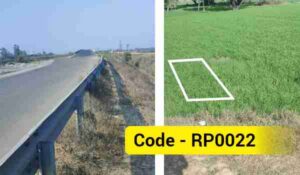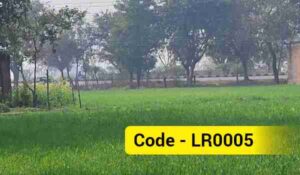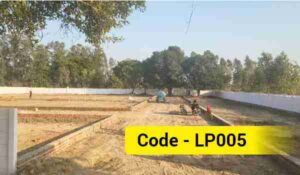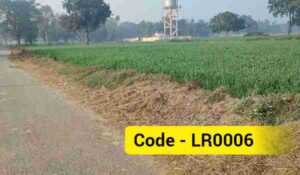Precautions and Legal Process for Making a Will: A Comprehensive Guide
A will is a crucial legal document that ensures your property is distributed according to your wishes after your death. In Uttar Pradesh, creating and executing a will is a sensitive process that requires careful consideration and adherence to legal procedures. This blog explains the precautions to take while drafting a will and the legal process involved in detail.
What is a Will?
A will is a written document in which a person specifies how their property (movable or immovable) should be distributed after their death. In India, wills are primarily governed by the Indian Succession Act, 1925, which applies to Hindus, Christians, Parsis, and other communities. For Muslims, the Muslim Personal Law governs the provisions related to wills.
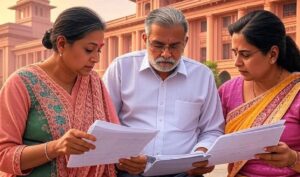
Precautions to Take While Making a Will
Drafting a will is a serious task, and it must be done carefully to avoid future disputes or legal complications. The following precautions should be observed:
1. Mental Soundness
-
The person making the will (testator) must be mentally sound and an adult (above 18 years of age).
-
The testator should be capable of making decisions without coercion, fraud, or undue influence.
-
If mental health is likely to be questioned, obtaining a medical certificate from a doctor is advisable.
2. Clear and Detailed Description
-
The will should include a clear and complete description of the property, such as:
-
Immovable property (house, land, shop, etc.) with specific details like address.
-
Movable property (bank accounts, jewelry, shares, etc.) with relevant details.
-
-
Specify the names of beneficiaries, their relationship with the testator, and their respective shares.
-
Ambiguity can lead to disputes, so all details must be accurate and comprehensive.
3. Presence of Two Witnesses
-
At least two witnesses must attest the will.
-
Choose reliable and independent witnesses who are not beneficiaries of the will.
-
Witnesses must be present when the testator signs or affixes their thumb impression and must sign the will to confirm its authenticity.
4. Written and Signed Document
-
The will should be in written form. While oral wills are recognized in certain cases (especially under Muslim law), a written will is preferred.
-
The testator must sign or affix their thumbprint on the document.
-
If the will is typed, ensure it is clear and legible.
5. Legal Advice
-
Consult a qualified lawyer while drafting the will.
-
A lawyer ensures the will is legally valid and free from errors.
-
Legal advice is particularly important for complex assets, such as joint family property.
Read More…
- Uttar Pradesh Building Construction and Development By-Laws 2025
- Laws Governing the Sale of Land by Scheduled Caste Landowners to General Category in Uttar Pradesh
- Understanding Section 80 (Section 143) of the Uttar Pradesh Revenue Code, 2006
- Succession Laws in Uttar Pradesh
- 12 Years of Possession (Adverse Possession) and the Property is Yours? The Complete Story of the Limitation Act and Supreme Court Rulings!
- Succession Laws in Uttar Pradesh
6. Special Rules for Muslim Law
-
Under Muslim Personal Law, only one-third of the property can be bequeathed through a will.
-
The remaining two-thirds is distributed among heirs as per Sharia law.
-
If the will covers more than one-third of the property, the consent of other heirs is required.
7. Registration of the Will (Optional)
-
Registering the will at the Sub-Registrar’s office is not mandatory, but it is highly recommended.
-
Registration enhances the authenticity of the will and reduces the likelihood of disputes.
-
For registration, the testator and witnesses must visit the Sub-Registrar’s office with the will.
8. Safe Storage
-
Store the will in a secure location, such as a bank locker or with a trusted individual.
-
Inform a trusted family member or the executor about the will’s location and details.
-
Keep a copy of the will and store the original document safely.
9. Regular Updates
-
Update the will as life circumstances change (e.g., marriage, birth of a child, acquisition of new property).
-
When creating a new will, explicitly revoke the previous will and mention this in the new document.
10. Avoiding Disputes
-
Inform all potential heirs about the contents of the will to minimize disputes after death.
-
For joint family property, consider the equal rights of daughters under the Hindu Succession Act, 1956 (2005 Amendment).
Legal Process for a Will
The process of creating and executing a will involves the following steps:
1. Drafting the Will
-
Prepare the Written Document: Clearly outline the property details, beneficiaries’ names, and their shares.
-
Sign and Witness: The testator must sign the will, and two witnesses must attest it.
-
Appoint an Executor: Designate an executor who will be responsible for implementing the will’s provisions.
2. Registration of the Will (Optional)
-
Register the will at the Sub-Registrar’s office.
-
Process:
-
The testator and witnesses must visit the Sub-Registrar’s office.
-
Submit identity proofs (e.g., Aadhaar card, PAN card) and the original will.
-
Pay a nominal registration fee (typically ₹100–500).
-
-
A registered will is stored at the Sub-Registrar’s office, which helps prove its authenticity in the future.
3. Execution of the Will
-
After the testator’s death, the will’s execution process begins.
-
Role of the Executor:
-
The executor implements the will’s provisions and distributes the property.
-
If no executor is appointed, the beneficiaries can initiate the process themselves.
-
4. Probate Requirement
-
What is Probate?: Probate is a certificate issued by a civil court that validates the authenticity of the will.
-
When is it required?:
-
For Hindus, Christians, and Parsis, probate may be required if the property value is high or for civil court proceedings.
-
Probate is not required under Muslim law.
-
-
Probate Process:
-
File an application for probate in a civil court.
-
Submit required documents: death certificate, original will, and property details.
-
The court issues notices to all heirs and verifies the will’s authenticity.
-
Once probate is granted, the will can be legally enforced.
-
5. Property Transfer
-
Based on the will or probate, the property is transferred to the designated beneficiaries.
-
For Agricultural Land: Apply at the tehsil office to update the heir’s name in the revenue records (khatauni).
-
For Non-Agricultural Property: Transfer the property based on a Succession Certificate or probate from a civil court.
Specific Rules in Uttar Pradesh
-
Agricultural Land: Under the Uttar Pradesh Revenue Code, 2006, succession of agricultural land is managed by revenue courts. To record the heir’s name, an application must be filed at the tehsil office based on the will.
-
Muslim Wills: Only one-third of the property can be bequeathed, with the rest distributed as per Sharia law.
-
Registration: In Uttar Pradesh, registering a will at the Sub-Registrar’s office is straightforward and helps prevent disputes.
Conclusion
Creating a will is an essential step to ensure your property is distributed as per your wishes. While drafting, ensure mental soundness, clarity, witness attestation, and legal consultation. Registration and secure storage enhance the will’s authenticity. After death, the will is executed through probate or a Succession Certificate. In Uttar Pradesh, agricultural and non-agricultural properties follow different procedures, so adhere to local regulations. Consulting a lawyer is advisable to avoid complications and ensure a smooth process.


